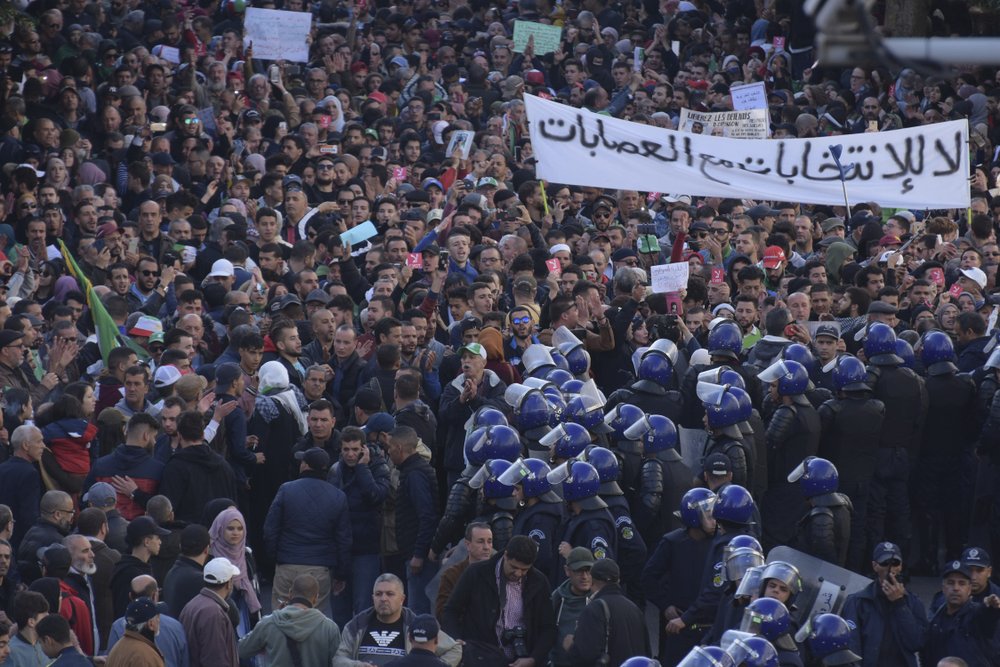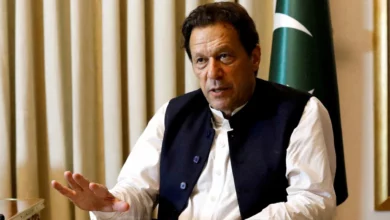
ALGIERS (Reuters) — Algeria’s government held a long-delayed presidential election on Thursday, despite months of street demonstrations by protesters who view the vote as a charade intended to keep the ruling elite in power.
The army, the strongest political player, sees the election as the only way to restore order by naming a successor to Abdelaziz Bouteflika, who was toppled by a popular uprising earlier this year after two decades in office.
The huge protests that brought down Bouteflika have continued for 10 months, and the demonstrators have sworn to boycott the election. All five candidates that won approval to stand are former senior officials, including two former prime ministers, and protesters say none is likely to challenge the army’s dominance.
In central Algiers, where thousands of people had taken to the streets on Wednesday to protest against the election, some people were voting on Thursday as police patrolled the streets on foot and in vehicles. A helicopter circled overhead.
“The country has entered a critical phase,” said Aziz Djibali, 56, who went to vote at a polling station near the prime minister’s office. “It’s time for Algerians to voice their opinions peacefully.”
But Salim Bairi, a schoolteacher sitting a central cafe, was boycotting: “What is the benefit of voting?”
Elections under Bouteflika were largely uncompetitive.
Kamel Moumni, 36, waiting for a taxi driver to take him to a dentist, said he hadn’t voted for years. “I will not change my mind today,” he said.
Outside the capital, polling stations in some areas were still closed hours after the official 0700 GMT start of voting, witnesses said. Polls close at 1800 GMT and no official results are expected until at least Friday.
At Haizer, in the Kabylie region which was the main theater of a 1990s civil war between the state and Islamist insurgents, groups of young people chanting “No vote” in the local Amazigh language marched through the streets.
Several people stormed a polling station and destroyed ballot boxes in the Kabylie town of Bejaia, a resident said.
Bouteflika stepped down after the army withdrew its support for him in April. The authorities were forced twice to delay an election to replace him, with votes previously scheduled for April and July.
The five presidential candidates are ex-prime ministers Abdelmadjid Tebboune and Ali Benflis, ex-culture minister Azzedddine Mihoubi, former tourism minister Abdelkader Bengrine, and Abdelaziz Belaid, a former member of the ruling FLN party’s central committee.
Some official preliminary figures for voter turnout will probably be released throughout Thursday, with the government hoping for wide participation to give the new president legitimacy and help end the protests.
There are no foreign observers monitoring the elections and many protesters have said they do not have faith in official results.
Reporting by Hamid Ould Ahmed and Lamine Chikhi; Writing by Angus McDowall; Editing by Clarence Fernandez and Peter Graff
Image: Algerian demonstrators take to the streets in the capital Algiers to protest against the government and reject the upcoming presidential elections, in Algeria, on Wednesday, Dec. 11, 2019 (AP Photo/Toufik Doudou)




